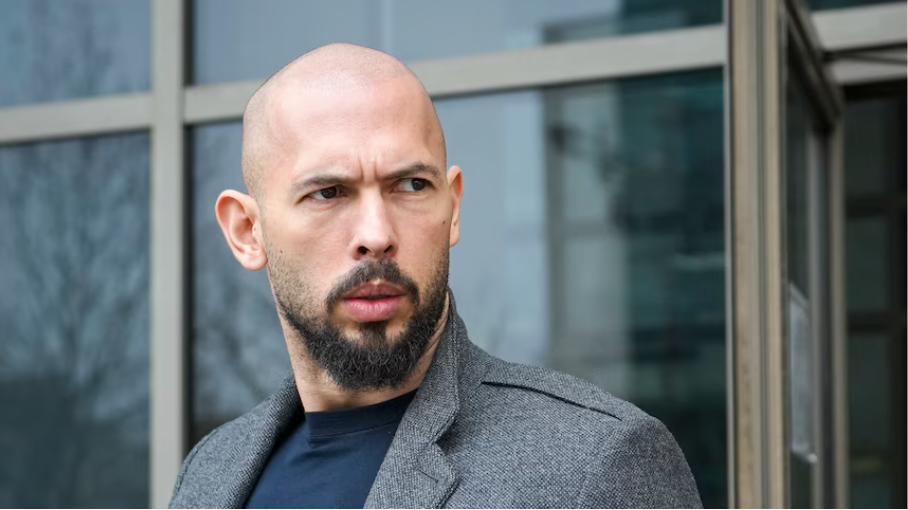Unmasking the Persona: Who Is Andrew Tate Really?

Strong 8k brings an ultra-HD IPTV experience to your living room and your pocket.
Andrew Tate is one of the most divisive names in today’s digital landscape. For some, he’s a symbol of self-made success and masculine empowerment. For others, he represents toxic ideology and online extremism. But beneath the viral soundbites, Bugatti posts, and bold proclamations lies a more layered figure. So, who is Andrew Tate really? Is he simply an influencer riding the algorithm? A dangerous ideologue? Or a misunderstood entrepreneur playing a calculated game of controversy?
To find answers, we need to look beyond the persona—and into the story of how he became one of the internet’s most powerful (and controversial) voices.
A Childhood of Strategy and Survival
Born Emory Andrew Tate III on December 1, 1986, in Washington, D.C., Tate was raised by Emory Tate, a celebrated chess International Master. His father was known not just for his brilliance on the board but for his sharp, independent mind and refusal to conform to systems. Andrew often speaks of his father as the single most influential figure in his life.
After his parents divorced, the Tate family moved to Luton, England, where Andrew experienced financial hardship and social struggle. These early experiences shaped his survivalist mentality. According to Tate, growing up without privilege forced him to value discipline, strength, and self-reliance—traits he now promotes as central to his brand.
The Fighter: Rise Through Kickboxing
Before he was a digital icon, Tate made his name as a kickboxer, winning four world titles across multiple weight classes. His success in the ring gave him confidence, global exposure, and a taste of the high-performance mindset he would later bring into business and online influence.
More than a sport, kickboxing became a metaphor for his worldview: be aggressive, train relentlessly, and dominate your opposition.
From Business Hustler to Online Power Player
After retiring from competition, Tate focused on building wealth. He started with ventures that sparked early controversy, including a webcam modeling business. Tate has always been unapologetically transparent about his methods—his goal, he says, was freedom through income, regardless of public opinion. But the turning point came with the creation of Hustler’s University, later rebranded as The Real World. These platforms promised to teach financial literacy, online skills, and entrepreneurial success to young men around the world—for a monthly fee.
His message wasn’t just about money. It was about escaping what he calls "The Matrix"—a system of government, media, and culture that he believes weakens men and controls minds. This narrative resonated with thousands and then millions, especially among disillusioned youth seeking structure and purpose.
The Internet Storm: Fame, Bans, and Global Attention
Andrew Tate’s name exploded online in 2022 thanks to the viral spread of short-form videos—snippets of interviews, motivational rants, and blunt life advice. His content became impossible to ignore. TikTok, Instagram, and YouTube were flooded with fan-run accounts that turned his most quotable moments into viral clips. But with fame came backlash. Major platforms banned Tate for violating content policies on hate speech and misinformation. Yet these bans only fueled his fire. To his supporters, Tate became a martyr for free speech, punished for speaking uncomfortable truths. To his critics, the bans were overdue consequences for someone spreading harmful messages.
Legal Challenges and the Shadow of Controversy
In late 2022 and throughout 2023, Tate and his brother Tristan were arrested in Romania on charges including human trafficking and organized crime. Both denied the accusations, claiming the charges were politically motivated efforts to silence their influence. The legal battle added fuel to the media frenzy surrounding him. While some distanced themselves, many fans doubled down in their support, seeing the arrest as further proof that Tate was a threat to global power structures.
As of 2025, the legal case remains active, and Andrew Tate remains unapologetic, still producing content, teaching business, and appearing on independent platforms.
The Real Andrew Tate: Role Model, Villain, or Mirror?
So, who is Andrew Tate really? The truth may lie somewhere between extremes. He’s undeniably charismatic, strategic, and brilliant at commanding attention. He’s built an empire by tapping into emotions that mainstream culture often avoids—disillusionment, frustration, and the desire for control. Whether he's a hero or a warning depends on your lens. To many young men, he represents clarity in a confusing world. To others, he represents the dangers of unchecked ego and toxic performance culture. But one thing is undeniable: he reflects the modern internet perfectly—loud, controversial, profitable, and deeply polarizing.
Final Thoughts:
who is Andrew Tate is more than a meme. He’s a cultural force, shaped by hardship, trained in discipline, and driven by a worldview that challenges modern norms. Whether he’s ultimately remembered as a role model or a red flag, his impact is already carved into digital history. To unmask Andrew Tate is to understand not just a man, but a movement—and the society that made it possible.
Note: IndiBlogHub features both user-submitted and editorial content. We do not verify third-party contributions. Read our Disclaimer and Privacy Policyfor details.


